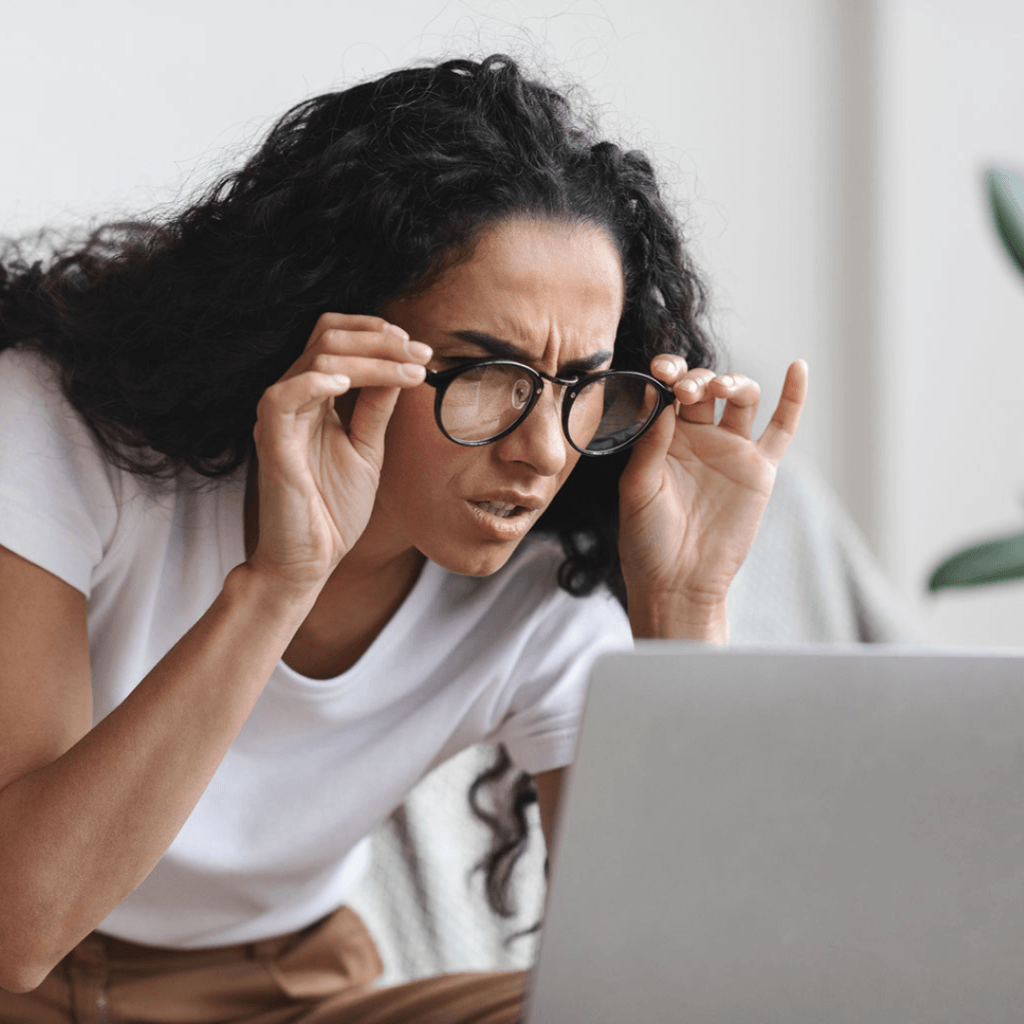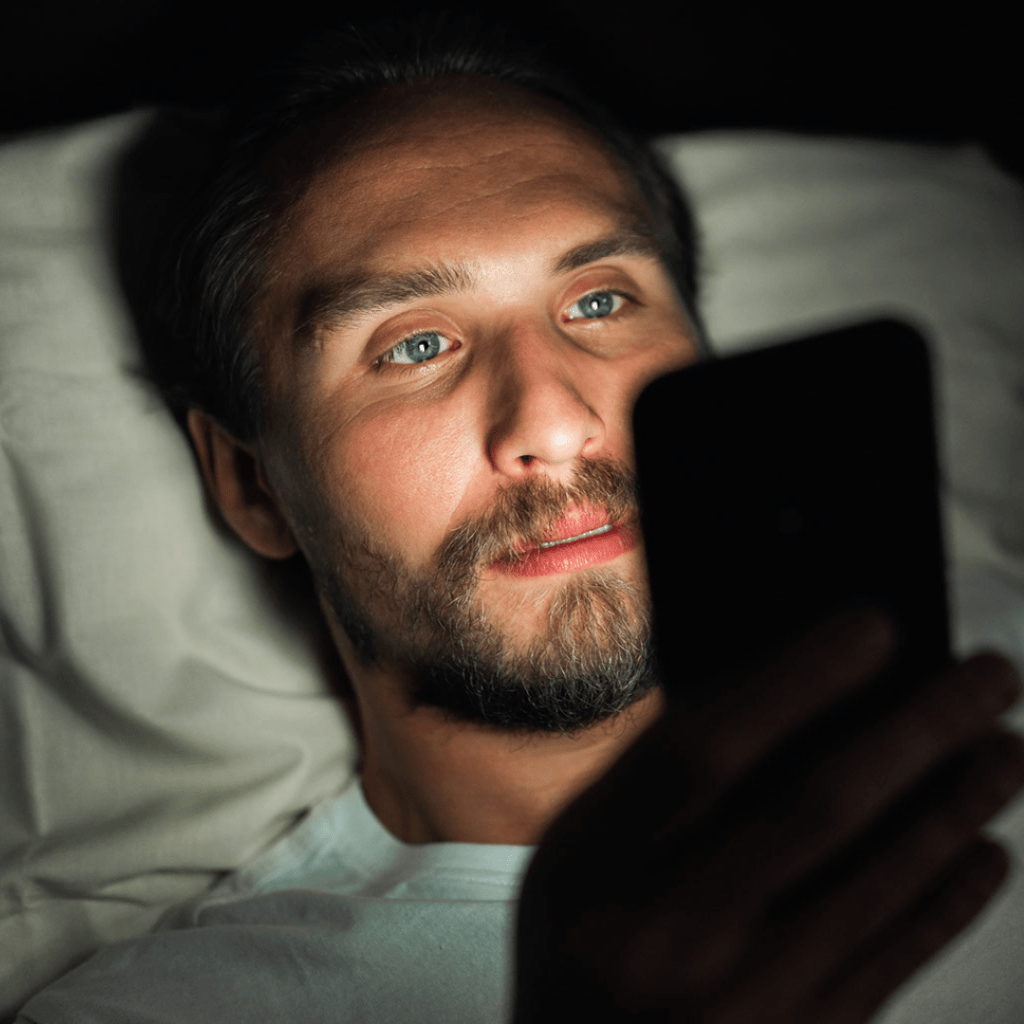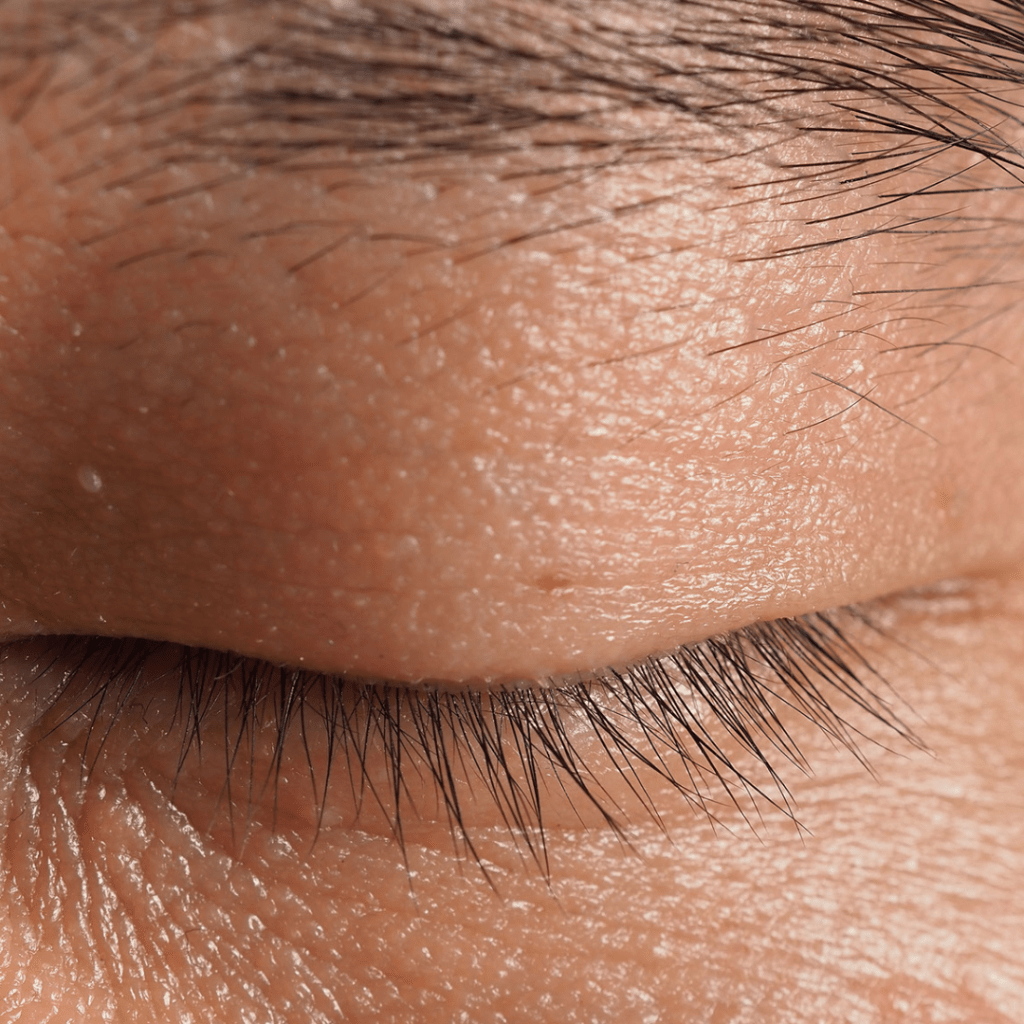What does a blue light filter do? Should blue-filtering glasses become mandatory for eye protection in the digital age we live in?
Let’s first examine what blue light is and how it affects our eyes before delving into the specifics of the myths about blue filter glasses.
Blue light:
The Sun’s electromagnetic spectrum is vast. A human eye can only see a narrow range of waves called visible light. Wavelengths of visible light ranges from 380 nanometers (ultraviolet light) to 700 nanometers (red light). The visible light spectrum includes blue light, which has a wavelength between 450 and 495 nm.
Numerous studies have suggested that prolonged exposure to blue light from the sun can have negative effects. According to these studies, blue light and UV rays may damage the retinal cells and cause macular degeneration.
Q1. CAN THE BLUE LIGHT FROM THE computer HARM THE RETINA?
Although it is known that blue light can enter the eye and harm the retinal cells through photoxicity, the amount of blue light emitted by smartphones, tablets, and other similar digital devices is insufficient to do so.
We get most of the blue light from the Sun. Numerous studies have suggested that prolonged exposure to blue light from the sun can have negative effects. According to these studies, blue light and UV rays may damage the retinal cells and cause macular degeneration.
Q2. Will a blue-light filter prevent digital eye strain?

No. Long-term use of a digital screen and infrequent blinking are the two main contributors to digital eye strain, also known as computer vision syndrome.
Imagine that you are lifting a glass of water and keeping it up for 1 hour at a stretch. What will happen? You will be sore by the end of it. Now imagine if you are working constantly looking at your screen. Your eye muscles are constantly working to focus and refocus. What will happen if you do this for hours and hours without taking any break?
You will get an eye strain. This problem increases with age as the eye muscles start to weaken. Also, when we are concentrating at our computer screen, our blink rate decreases.
Thus blue light has nothing to do with digital eye strain.
To prevent CVS, follow the 20/20/20 rule (Look at an object 20 feet away for 20 seconds after every 20 minutes of computer work), use lubricating eye drops, and have your eyes tested for refractive errors.
Q3. Does Blue light cause AGE RELATED MACULAR DEGENERATION?

The relationship between chronic light exposure and AMD is difficult to establish. This is because AMD is a complex multifactorial process. It involves nutrition, smoking, genetics, and many other factors in addition to light exposure.
There is inconclusive clinical or experimental evidence that exposure to ordinary light causes AMD.
A ten-year follow-up study showed that participants who spent more time in the sun during the summer (over 5 hours per day) had a higher risk of developing early age-related maculopathy.
Photochemical damage to the retina is caused by near UV and blue light, which are part of the sun’s spectrum at the earth’s surface. Some phototoxicities(solar retinopathy) are caused due to intense acute rather than lifelong normal light exposures.
Neverthelss, long-term sun ray exposure is a risk factor for Macular Degeneration, according to the WHO.
Hence, along with a low-fat and healthy diet, eye vitamins, maintaining a healthy weight, monitoring cholesterol levels, wearing UV- protected sunglasses and a wide-brimmed hat for sun protection are crucial in preventing AMD.
Q4. Does blue light interfere with sleep?
A good night’s sleep is essential for the development of children and the prevention of long-term health problems such as dementia and Alzheimer’s.
Typically, the retinal cells signal the pineal gland to go to sleep at night as the light fades. The pineal gland’s release of the sleep hormone melatonin causes a person’s body to feel relaxed and sleepy.

The International Agency for Research on Cancer (IARC) has classified night shift work as a probable carcinogen, as their are studies linking chronic suppression of melatonin secretion by nocturnal light exposure with an increased risk of breast, colorectal, and advanced prostate cancer
A study found that reading a light emitting eBook in the hours before bedtime reduced sleepiness, reduced EEG delta/theta activity, and suppressed the late-evening rise of pineal melatonin secretion. This was in contrast to reading a printed book in reflected light.
Additionally, they found that reading a light-emitting eBook before bedtime affected sleep quality, disrupted the circadian rhythm, reduced REM sleep, and reduced wakefulness in the morning.
According to these findings, reading a light-emitting eBook right before bed may have unintended biological effects that could be detrimental to performance, health, and safety.
Blue light disrupts circadian rhythms and suppresses melatonin production. Thus, at night when the screen is on, the blue light from the device tricks the body into believing that it is still daytime, causing it to feel tired but awake.
When working at night, it is preferable to switch the phone to night mode or blue filter mode, or to download a software in your computer that will allow you to do so, rather than investing in a pair of blue filter glasses.
Q5. Is it true that anyone who spends a lot of time in front of a computer MUST always wear blue-blocking glasses.
Blue light is necessary for good health because it increases alertness, aids memory and cognitive function, and improves mood.
According to one study, blue-enriched white light can enhance alertness and prevent fatigue-related behavioural lapses.
The circadian rhythm regulates the body’s natural wake-and-sleep cycle. Exposure to blue light during the day keeps a healthy circadian rhythm in check.
As a result, blue-filter glasses should not be worn during the day and if at all, should only be worn at night in front of a light emitting digital device 1-2 hours before going to bed.
Q6. Can eye cancer be caused by blue light?

The most frequent primary malignant intraocular tumour in adults is uveal melanoma (UM).
In a study, the progression of uveal melanoma in rabbits exposed to blue light was examined. According to this study, exposure to blue light may affect how Uveal melanoma develops.
The results of a study support this idea and call for additional research to determine whether blue light filtering lenses can slow the progression of disease in UM patients.
Additional studies have suggested that blue light exposure may play a role in the malignant transformation of melanocytes, which can ultimately lead to the development of melanoma.
QUICK SUMMARY:
It is not necessary to wear blue light-filtering glasses while using a digital device to prevent eye strain. It has certainly no role in preventing AMD. Wearing them during the day can disrupt the circadian rhythm, resulting in daytime drowsiness. Turning off all digital devices an hour before bed is the best way to prevent circadian disruption and get better sleep. If necessary, switch the digital device’s settings to night mode or blue filter mode. If you experience blurred vision as a result of prolonged or intense sun exposure, have your eyes examined.
